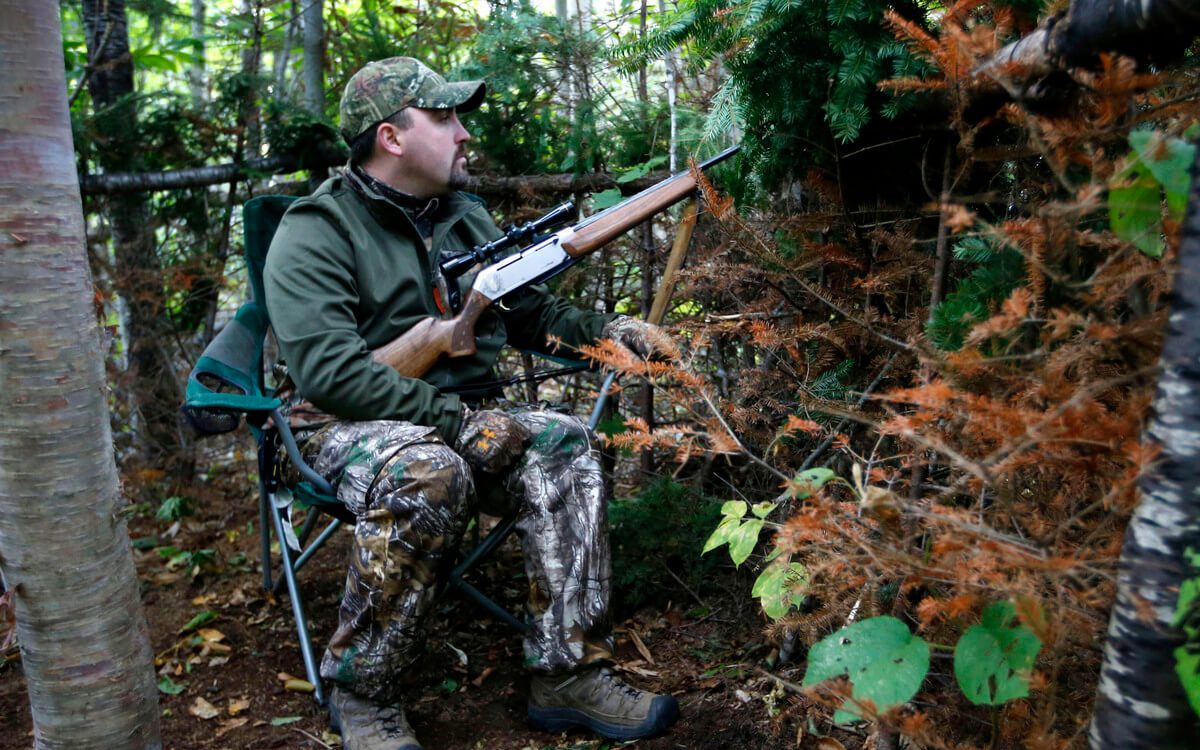

Maine landowners who do not want hunters and their dogs accessing posted property are the intended beneficiaries of a new law scheduled to go into effect on Aug. 8.
The civil trespass with hunting dog law puts the responsibility on hunting dog trainers and handlers to make sure the animals do not access posted property. Some hunters in Maine employ dogs to pursue bears, coyotes, bobcats, raccoons and foxes during the regular seasons for that game.
The law does not apply to anyone who uses a dog to hunt snowshoe hare, waterfowl, ruffed grouse, woodcock, wild turkey and other species of waterfowl or migratory birds.
The law emerged from discussions in a stakeholder group that included both hunters and landowners. Maine property owners expressed concerns about hunting dogs going onto private, posted property and disrupting people, livestock, pets and wildlife.
The new regulation aligns with the existing Maine law that prohibits hunting on posted property. Hunting, with or without dogs, is allowed on any land that is not posted.
Those aged 16 and older who wish to hunt bear, coyote, fox, bobcat and raccoon, or who want to train dogs to hunt bears, foxes and raccoons, will now be required to have a dog training and hunting permit.
The permit, which does not mandate any training for the dog handlers, costs $12 (plus agent fee). Proceeds from those sales will benefit the Department of Inland Fisheries and Wildlife’s Landowner Relations Fund.
A person who is training or hunting with a dog under the supervision of and in the presence of a registered Maine hunting guide who has a valid dog training and hunting permit is exempt from possessing the permit.
Although most hunting dogs generally are already fitted with tracking collars, the new law mandates that any dog engaged in hunting bear, coyote, fox, bobcat or raccoon or training to hunt bear, fox and raccoon must wear a functioning tracking collar that allows the handler to track the dog’s location at all times.
The collar must include the name, phone number and address of the dog owner.
A dog owner, trainer or handler is in violation of civil trespass with a hunting dog when turning a hunting dog loose on posted property or allowing a hunting dog to access property where the landowner has communicated to the dog handler that they do not want hunting dogs on their property.
A violation also would occur if someone’s hunting dog enters property upon which a hunting dog has been previously found and a law enforcement officer has warned any handler of that dog within the previous 365 days that hunting dogs are not permitted on the property in question.
A handler whose dog enters posted property, and leads the landowner to file a complaint against that person with law enforcement, would receive a warning for the first such violation.
The penalty for anyone convicted or adjudicated of civil trespass with a hunting dog is ineligible to obtain a dog training and hunting permit for a minimum of one year.
Some landowners, including those who post their property and do not allow hunting, supported a dog hunting law to help protect their right to privacy and to reduce the potential for conflicts.
The law was supported by groups such as the Maine Woodland Owners and the Maine Professional Guides Association.